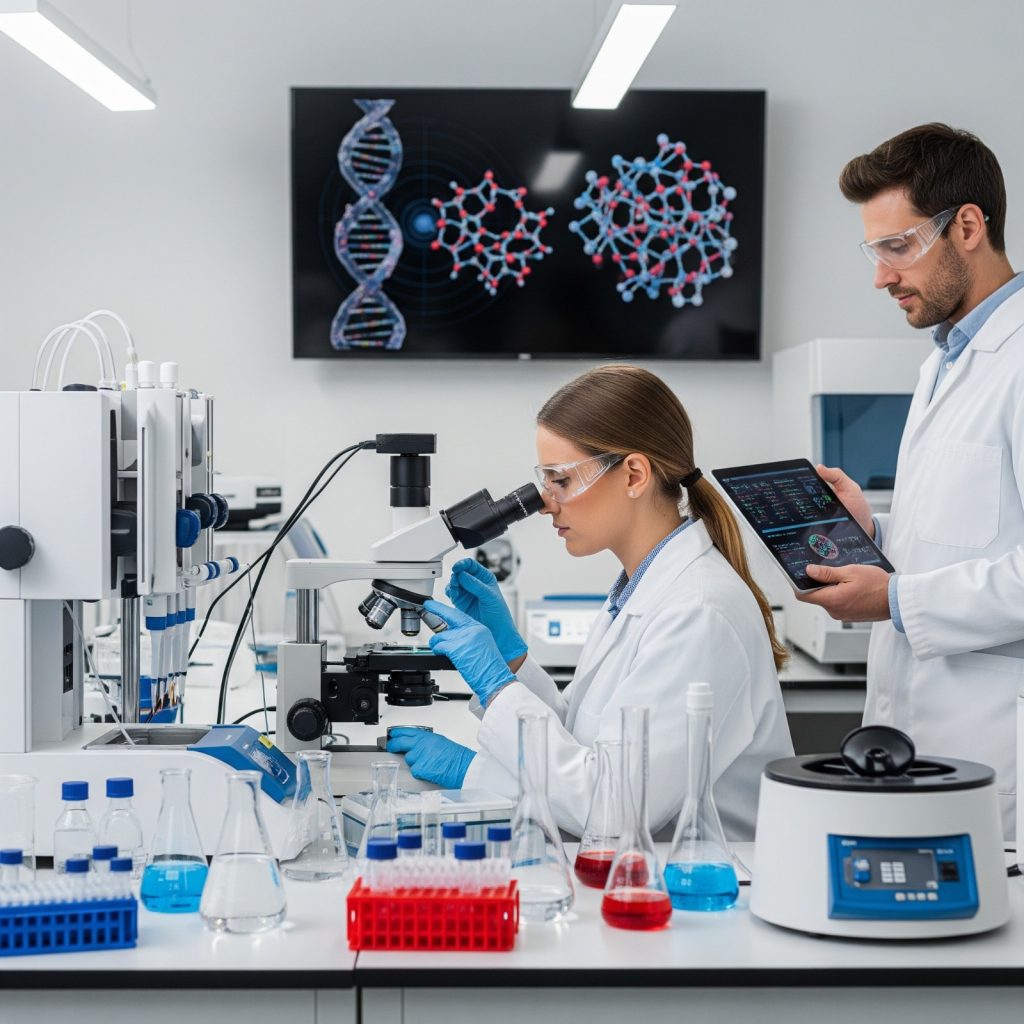That transforming nature of the oncology pharmaceutical landscape is all driven by rising global demand. The evolving treatment options have increased the role of specialized manufacturing partners and CDMO services. This is all because cancer continues to be one of the pressing health concerns globally. Thus, we need innovative therapies and efficient delivery models.
Specialized Oncology CDMO companies provide end-to-end services ranging from formulation development, clinical trial, large-scale production, branding and more. Their dedicated involvement not only accelerates oncology drug development but also ensures compliance with stringent global regulatory requirements.
Let’s find out more about how emerging trends in Oncology Pharma and CDMOs are enabling faster production of oncology medications.
The Growing Importance of Oncology Pharma
Today, oncology is one of the largest and fastest-growing segments in the pharma sector. The advancements in precision medication immunotherapies, targeted therapies, and cancer treatments have moved to the next level beyond conventional chemotherapy.
The era of innovations demands highly specialized Pharmaceutical Contract Manufacturers holding complex drug development, stringent quality controls and constant adaptation to evolving technologies.
Summarising on pharma companies, then most of them face challenges in scaling up the drug production, maintaining cost efficiency and meeting the global regulatory standards. This is where drug companies likely collaborate with dedicated CDMOs offering oncology development, thus bridging the gap.
What Makes Contract Manufacturing Organizations Vital for Oncology?
Understand this—oncology drug development requires specialised handling—as it’s about complex molecules, biologics and high-potency active pharmaceutical ingredients—HPAPIs. The in-house manufacturing setup often lacks infrastructure, advanced equipment, compliance and more.
This may impact the management of the complexities. CDMOs bring expertise, required infrastructure and regulatory knowledge—addressing these unique needs. The key reasons behind this are indispensable, which include-
- Advanced Capabilities: They are developed and inherit facilities tailored to handle high-potency and sterile products.
- Scalability: Whether it’s small-scale clinical trial batches or the global supply and demand chain, CDMOs are adaptable to production volumes.
- Regulatory Expertise: Next to their model of being adaptive, CDMO companies also understand the evolving compliance across multiple regions.
- Speed to Market: Pharmaceutical Contract Manufacturers also help in streamlining the drug production process. This eventually reduces the time on average taken in the drug development lifecycle.
Emerging Trends in Oncology Pharma and Contract Manufacturing
Rise of Biologics and Biosimilars
To manage the momentum of biologic drugs and biosimilars, CDMOs help in targeting cancer therapies. The need for advanced bioprocessing technologies and CDMO Services requires investment. This emerging trend is expected to have more exposure and rapid expansion.
Personalized and Precision Medicine
Today, oncology is at the forefront of precision medicine; thus, treatments are tailored to patients’ genetic profiles and requirements. This needs CDMOs within customised batches of drugs with precise specifications. The manufacturers are now adapting it by offering flexible batch sizes, modular facilities and digitalised production to manage the shift and speediness.
Focus on High-Potency APIs
The top Contract Manufacturing Organisation Pharma, works on high-potency APIs. This is all because the production of oncology drugs demands specialised containment and safety protocols. CDMOs are focused on investing in advanced facilities to safely handle the complexities of oncology medication manufacturing, ensuring workers’ safety while keeping product quality integrated.
Integration of Digital Technologies
The state-of-the-art, AI-driven process optimisation, blockchain-based supply chain, and digital tools are now necessities for CDMOs. They support in redefining pharmaceutical manufacturing with the adoption of technologies; help improve efficiency, reduce errors and enhance traceability.
Globalisation of Supply Chains
Typically, oncology drugs are needed within multiple geographies, and CDMO keeps that consistency of supply managed by leveraging global networks. Multi-site manufacturing and compliance expertise worldwide in regions like the US, Europe and Asia. This global surge is critical to reducing the oncology drug shortages by speeding up the manufacturing process.
Sustainability in Manufacturing
That’s something which can not be negotiated in pharma manufacturing. Oncology CDMOs are majorly focused on reducing waste, energy-efficient facilities, greener drug production process, sustainable packaging and more. It all works in aligning the goals of environmental responsibility.
Increased Outsourcing by Small Biotech Firms
The newest and advanced yet smaller biotech firms are focused on oncology, but often miss managing the manufacturing capacity. Partnering with CDMO Services aims at R&D—while leveraging the expertise & infrastructure, which brings the best therapies to the market faster.
Opportunities and Challenges Ahead
The growing partnership between oncology pharma and contract manufacturing companies shares both opportunities and challenges. Opportunities exist for broader patient accessibility for cutting-edge therapies, reduced development timelines, and cost-efficiencies for pharma companies. Challenges may be difficult but not impossible—revolve within regulatory hurdles, supply chain disruptions and seamless investment in new technologies.
The Final Verdict
Let’s summarise here—To manage that momentum of biologic drugs and biosimilars, CDMOs help in targeting cancer therapies. The need for advanced bioprocessing technologies is driving CDMO Services to invest heavily.
This emerging trend is expected to have more exposure and expansion. It’s a setup to grow cancer drugs to reach patients with cost-efficient cancer therapies and treatment on a speedy note. However, we need more precise steps to strengthen the collaboration between Oncology Pharma and CDMOs specialised in it.
FAQs
1. Why are CDMO services especially important in oncology pharma?
Oncology drugs often involve complex molecules and high-potency compounds that require specialised facilities and expertise. CDMOs provide the infrastructure, regulatory knowledge, and scalability to bring these therapies to market efficiently.
2. What trends are shaping the future of oncology contract manufacturing?
Key trends include the rise of biologics and biosimilars, personalised medicine, advanced handling of high-potency APIs, digitalised production systems, and sustainable manufacturing practices.
3. How do CDMOs benefit smaller biotech companies in oncology?
Smaller biotech firms, often leading in innovative cancer therapies, may lack large-scale production facilities. CDMOs enable them to focus on research and development while handling the complexities of manufacturing, quality control, and regulatory compliance.



